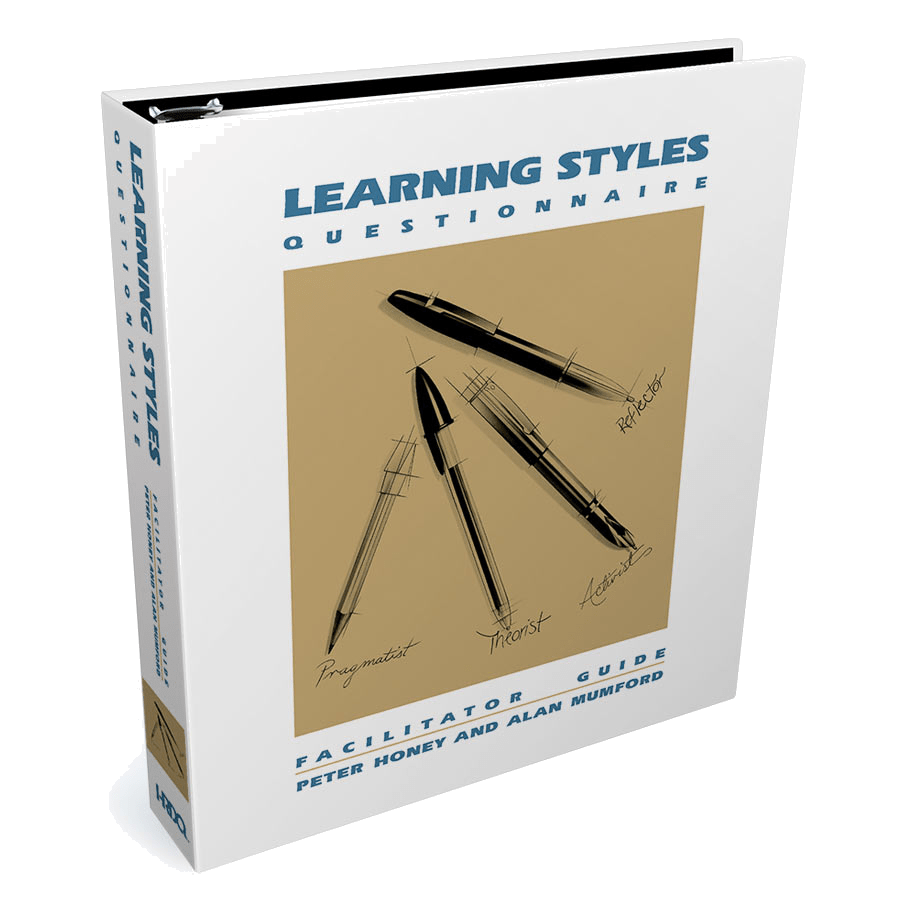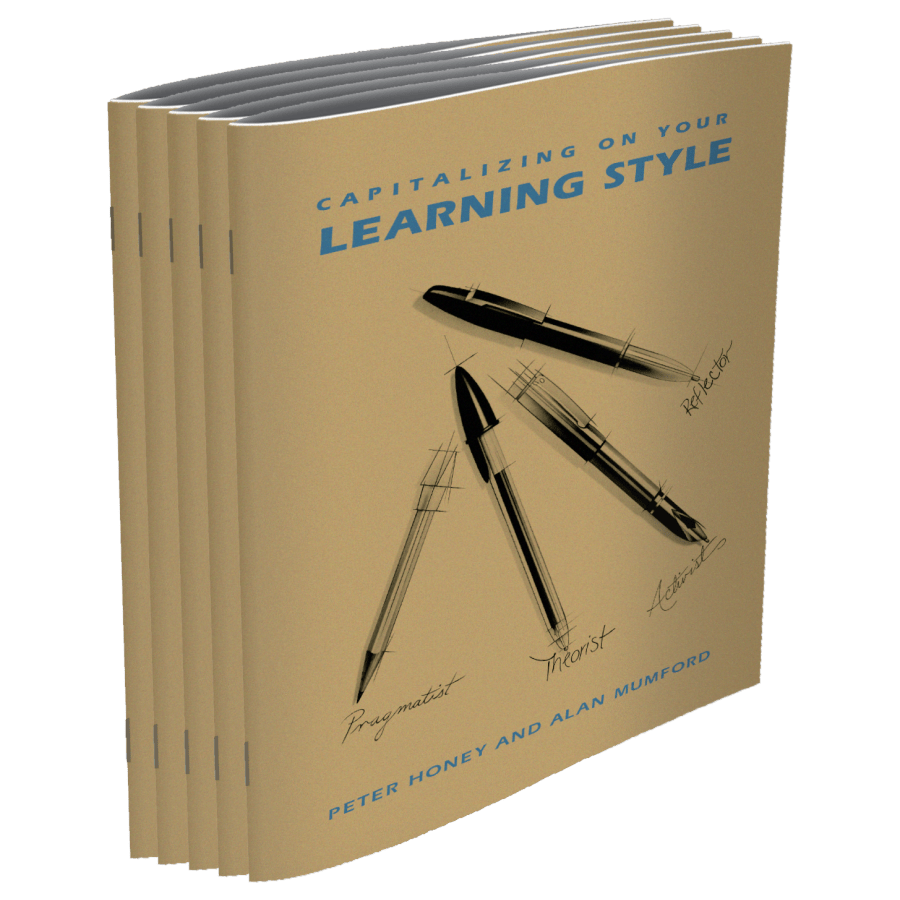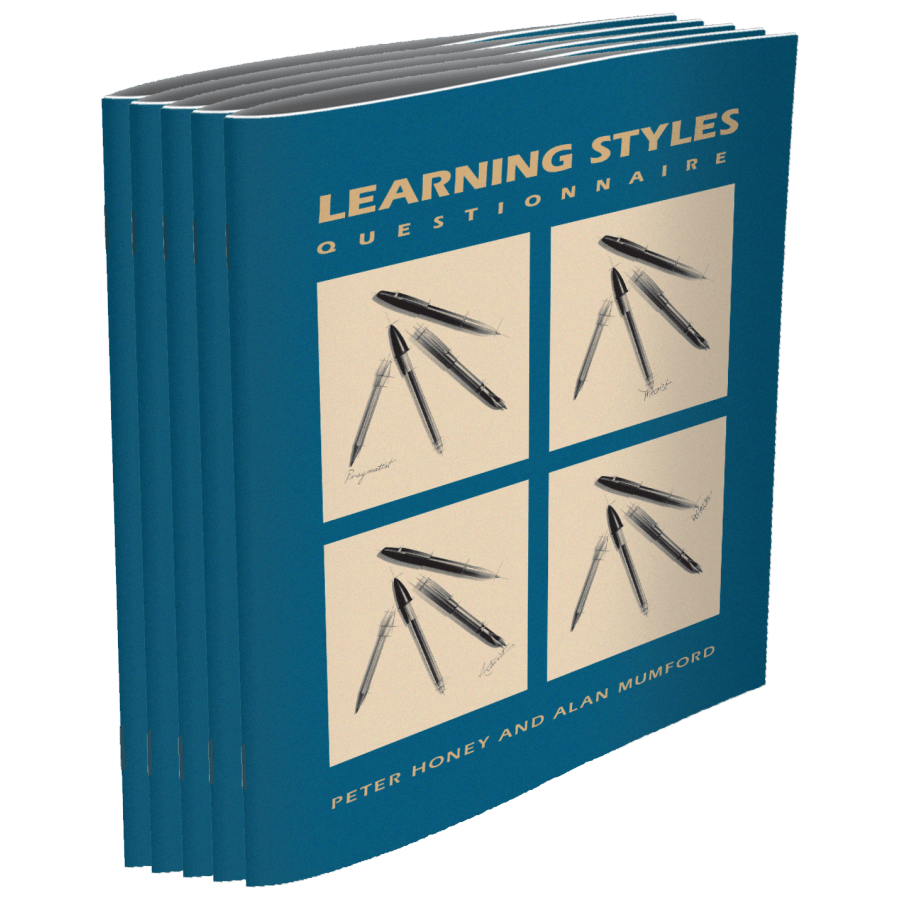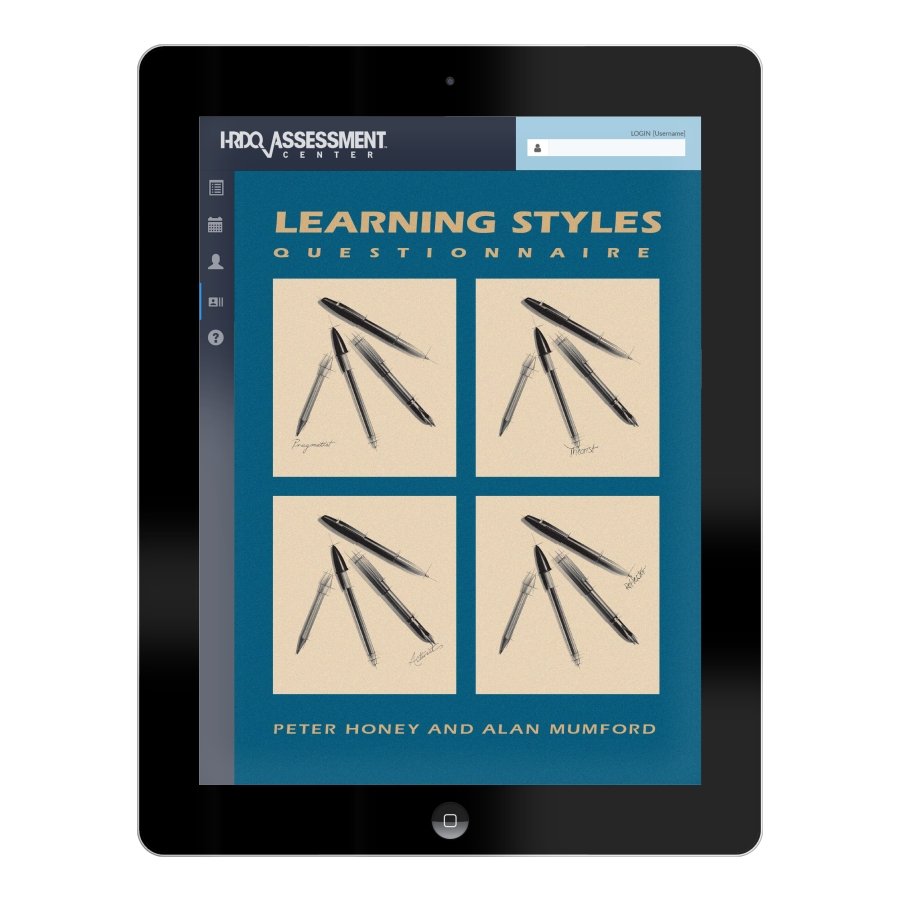Learning Styles Questionnaire (LSQ)
Learning Styles Questionnaire (LSQ)
Discover how you learn best with the Learning Styles Questionnaire (LSQ) by Peter Honey and Alan Mumford. This quick, powerful tool reveals whether you're an activist, reflector, theorist, or pragmatist, so you can tailor your learning for faster, more effective results.
Overview
Overview
Did you know that there are different learning styles? Your learning style is the method by which you best learn and retain information, and each person has their own style. Understanding your learning style can help you optimize your learning experiences and put you in a better position to select the learning experiences that are better suited to your needs.
But how do you figure out your learning style? The Learning Styles Questionnaire, developed by renowned learning specialists Peter Honey and Alan Mumford, identifies your learning style preference and provides actionable insights to expand your learning style range.
How It Works
How It Works
The Learning Styles Questionnaire starts with an 80-item self-assessment that takes approximately 30 minutes to complete. The result is a score containing the four learning styles, with the highest score being the individual's dominant learning style using a four-quadrant model.
The accompanying workbook, Capitalizing on Your Learning Style, helps individuals make sense of their LSQ results. It shows individuals how to maximize their learning strengths, compensate for weaknesses, and develop their less dominant styles.
Learning Outcomes
Learning Outcomes
By the end of this training session, participants will do the following:
- Identify individual learning style preferences
- Increase the awareness of learning activities that are congruent with individual learning styles
- Learn how to maximize learning strengths
- Develop less dominant learning styles
- Balance the learning styles of groups
- Surface team learning difficulties
- Expand their learning style range
Uses and Applications
Uses and Applications
Surface team learning issues and help balance training methods to accommodate the different learning preferences in your group using the Learning Styles Questionnaire.
The LSQ is effective as a stand-alone learning instrument and as part of a more comprehensive training program. You can use the LSQ to do the following:
- Balance the learning styles of groups
- Help trainers identify the dominant learning style of participants
- Surface team learning difficulties
- Help managers understand and motivate their employees
- Discuss the learning process
- Help participants expand their learning style range
What to Order
What to Order
Facilitator Guide
Order one guide per trainer. The Learning Styles Questionnaire Facilitator Guide includes comprehensive background information, activities, reproducible handouts, and a professional PowerPoint presentation. Facilitator support materials will be available as a digital download link in your order confirmation.
Workbook 5-Pack
Order one pack for up to five participants. The Workbook is a comprehensive takeaway and includes critical content, worksheets, and forms used during the workshop.
Paper Assessment 5-Pack
Order one pack for up to five participants. The print version is ideal for facilitators who prefer to oversee scoring and administration of the assessment. It includes pressure-sensitive forms for manual scoring.
Online Assessment
Order one per participant. Serving as the foundation for the workshop, the online assessment is administered to participants through the HRDQ Assessment Center. A detailed report is delivered electronically to the facilitator when complete.
QuickStart Train-the-Trainer (QST)
QST is a convenient, one-hour virtual coaching session for first-time facilitators of this product. You'll receive personalized, one-on-one coaching with a subject matter expert who will get you up to speed quickly and accurately so you can confidently step into the onsite. We'll answer all your questions about the facilitation of the product. And you can add additional coaching hours as needed. Your coaching session can be provided by telephone or video call, and at a time of your choosing.
Facilitators will also receive an HRDQ Certificate of Completion for completing the QuickStart session.
Author Info
Author Info
Dr. Peter Honey is a psychologist who began work as an independent management consultant in 1969. He specializes in all aspects of human behavior and its consequences. He regularly conducts programs on developing interactive skills, creative thinking, and problem-solving. He is a member of the British Psychological Society and the Institute of Management Consultants. He is a fellow of the RSA, the Chartered Institute of Personnel and Development, the Institute of Management Consultants, and the Institute of Training and Occupational Learning. He was a founder member of the distinguished group that produced A Declaration on Learning, and he is a patron of the Campaign for Learning, a trustee of the Lifelong Learning Foundation, and the Prisoners' Education Trust. Dr. Honey is a dedicated lifelong learner, has written well over 20 books and numerous articles, and has a regular column in Training Journal.
Alan Mumford, D.Litt., is a UK-based consultant, researcher, and author primarily focusing on how senior executives learn. His work takes him to countries as diverse as Nepal, Australia, South Africa, Finland, and the United States. His prime interests are covered in his books, How Managers Can Develop Managers and Learning at the Top. Mumford has been involved with management training and development and other managerial effectiveness aspects for more than 20 years. Currently, he is a visiting professor of management development at the Interactive Management Centre. He continually improves how most managers learn (in particular, through their regular work).
Focus: Learning Skills
Type: Assesment
Delivery: Virtual and/or In-Person
LENGTH: 1.5 hours
Share






HRDQ Assessment Center Info

Online assessments are administered to participants through the HRDQ Assessment Center and include personalized reporting, full-color charts, interpretive information, worksheets, and action planning. Join the thousands of HRDQ online learners today!
- Administrators: Order credits on your Admin dashboard
- New Trainers: Get an Admin account
- Students: Self-enroll without an Admin
- Questions: If you have any issues, contact us








